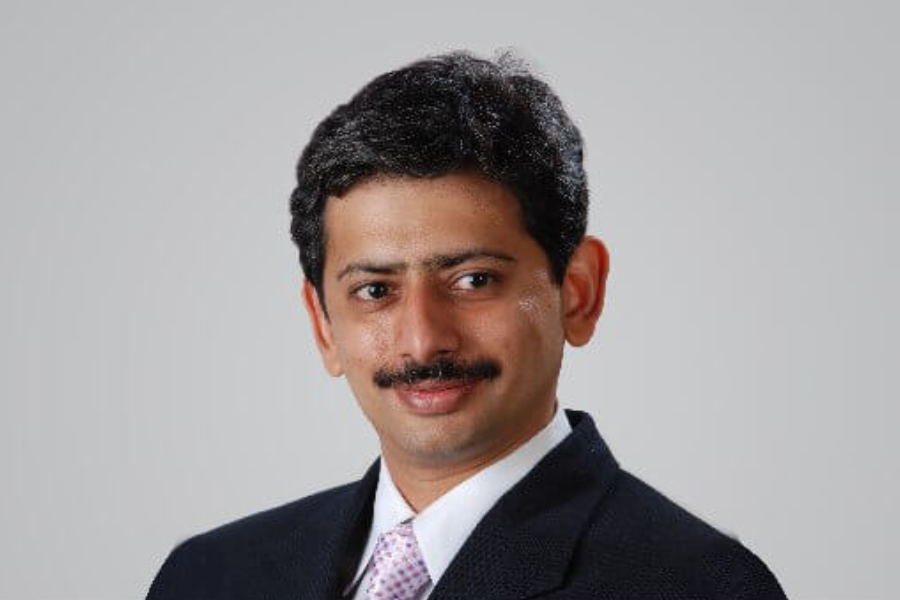Solar, a promising landscape for the renewable energy sector in India
In an exclusive interview with India Business and Trade (IBT), Shiv Pandya, Vice President of Sunora Solar, shares insights into the remarkable journey of Sunora Solar and its pivotal role in advancing India’s renewable energy sector.
Founded in 2016 by three college friends, Sunora Solar has swiftly become a major player in the industry, installing over 25 megawatts of solar projects and serving a vast clientele. Shiv Pandya discusses the company’s unique offerings, strategies for success, and the challenges and opportunities within the dynamic renewable energy market.

Image Source: Sunora Solar
IBT: What is the inspiration behind the establishment of Sunora Solar?
Shiv Pandya: In 2016, Sunora Solar was founded by three college friends – Mr. Piyush Variya, Mr. Ridham Patel, and Mr. Mayur Vastarpara. Their goal was to provide green energy solutions to industries in need, as there was a high demand for it at the time. With new policies and developments in the state, they saw an opportunity to create a company that could address the power requirements of the industry. Initially, Sunora Solar functioned as an electrical contractor firm but later expanded to include module manufacturing as well. Today, the company has made significant progress in backward integrations and continues to grow. This is the story of how Sunora Solar came to be.
IBT: What sets Sunora Solar apart in the renewable energy market especially when we talk about areas like solar panels, EPC services and rooftop solutions? Could you also tell us about the core target audience in the present scenario?
Shiv Pandya: Yes, Sunora Solar has already installed more than 25 megawatts of solar projects in India. We have a customer base of over 5,000 clients. As I mentioned earlier, we began our journey as an electrical contractor, and then we transitioned into solar rooftop installations. Just a year and a half ago, we started our own company for manufacturing solar modules. Currently, we are promoting our solar panels in the market, manufacturing both polycrystalline and monocrystalline half-cut panels. Additionally, we are expanding into the solar EPC (Engineering, Procurement, and Construction) segment. In the EPC sector, we are developing solar parks where customers facing land constraints or pollution concerns near their factories can set up their own solar projects within our solar park. This allows them to benefit from energy savings. Our goal is to further penetrate the EPC and rooftop segments, with a primary focus on the Commercial and Industrial (C&I) sector. The government has introduced various subsidies and incentives, such as interest subsidies for MSMEs, in this segment. We aim to capitalize on these government incentives to gain a larger market share.
IBT: How have you overcome the challenges faced by Sunora and also, how do you ensure seamless integration of solar panels when it comes to pick projects?
Shiv Pandya: Indeed, the solar module segment faces several challenges. We witness ongoing technological advancements, coupled with frequent fluctuations in raw material prices, posing significant challenges to all solar module manufacturers. Previously, we promoted polycrystalline modules, but the trend has shifted towards monocrystalline technology. Looking ahead, topcon series modules are expected to gain prominence. This rapid evolution in solar panel technology reflects the dynamic nature of the industry. Additionally, there’s a substantial demand for solar projects across the country, leading to increased pressure on deliveries and production capacities.
In response to these challenges and to meet the growing demand, we have initiated a significant expansion of our manufacturing facilities. We plan to increase our factory capacity from 200 megawatts to 500 megawatts by the end of 2023. This expansion is a crucial development for us this year, allowing us to address the evolving needs of the solar market effectively.
IBT: What strategic approaches and unique offerings have contributed to Sunora Solar’s success and differentiation in the competitive renewable energy industry?
Shiv Pandya: Our primary strategy revolves around being as close to the customer as possible. Understanding our customers’ needs and preferences is essential for providing them with the right services and solutions. To achieve this, we employ various approaches. We have an extensive associate network and a dedicated sales team that actively engages with customers in the market. They keep our customers informed about our company’s offerings, current policies, and market dynamics.
Furthermore, our strategies are customer-centric, meaning we tailor our approach to meet our customers’ specific requirements. For instance, some customers may seek a one-stop solution, while others require assistance with financing and loans. In response, we facilitate connections between our customers and banks or NBFCs to meet their financial needs.
By offering end-to-end support and addressing the entire project lifecycle, we instil confidence in our customers, particularly those with busy schedules. This customer-centric approach has been instrumental in our business growth and success.
Watch the interview here:
IBT: What would be your advice to the policymaker to further uplift this sector?
Shiv Pandya: Our suggestion is that solar policy in India should be flexible and well-aligned with the diverse policies in different states. Currently, each state in India has its own solar policy with distinct benefits and models. As we expand into interstate and intrastate projects, it’s essential that the national solar policy complements and integrates with state policies. The policy should streamline licensing processes and operate efficiently, ensuring that end-users reap the benefits promptly. This harmonization between national and state policies is crucial for the continued growth and success of the solar industry in India.
IBT: What emerging opportunities do you see in the green energy sector in the future? And how can the coming entrepreneurs position themselves to thrive in this dynamic and promoting industry?
Shiv Pandya: Absolutely, India has set ambitious targets in the realm of renewable energy. The long-term goal is to achieve net-zero carbon emissions by 2070, and in the short term, the aim is to reach 500 gigawatts of renewable energy capacity by 2030. These targets are indeed ambitious, and they require concerted efforts from all stakeholders.
The green energy sector in India is teeming with opportunities. We have ground-mounted solar projects, battery storage solutions, developments in electric vehicles (EVs), and more. Additionally, the international market holds promise, with Indian companies venturing into countries like the USA to establish their own module manufacturing plants. These opportunities are available; we just need to tap into them effectively and efficiently. It’s a promising landscape for the renewable energy sector in India.
Mr. Shiv Pandya is the Vice President of Sunora Solar. Having worked extensively with large conglomerates, both Indian and International, Shiv has gained an in-depth understanding of businesses over the last 18 years.













THANK YOU